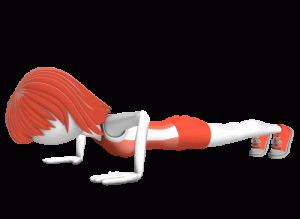 What Do ADD (Attention Deficit Disorder) and ADHD (Attention Deficit Hyperactivity Disorder) Mean, and Are You Experiencing the Symptoms? Is it related to sleep disorders? Do you need a Life Coach who specializes in this area?
What Do ADD (Attention Deficit Disorder) and ADHD (Attention Deficit Hyperactivity Disorder) Mean, and Are You Experiencing the Symptoms? Is it related to sleep disorders? Do you need a Life Coach who specializes in this area?
According to WebMD, ADD and ADHD refer to a condition with symptoms such as inattentiveness, impulsivity, and hyperactivity.
The symptoms differ from person to person. ADHD was formerly called ADD, or attention deficit disorder. Both children and adults can have ADHD, but the symptoms always begin in childhood. Adults with ADHD may have trouble managing time, being organized, setting goals, and holding down a job.”
The A.D.D. Resource Center gives more details. (Note: I’m going to use both terms (ADD and ADHD) occasionally, because (although I might be wrong) I don’t think everyone who has these symptoms is hyperactive. However, the new convention is to refer to all symptoms under the label ADHD.)
Guest Contributor, Life Coach Linda Swanson, Will Teach Us More Here

Linda and Neil Swanson
I learned a lot about this broad topic from my colleague, Linda Swanson. She and her husband, Neil, specialize in Life Coaching for clientele who have been diagnosed as having ADD/ADHD. I find Linda and Neil to be thoroughly knowledgeable, always eager to learn more, and highly ethical practitioners. In addition, they are Very Nice People, so I highly recommend them. Click Here to learn more about Linda in this Center for Justice and Peace Building publication.
Their company is freetobecoaching. They are on the Board of Directors of The Professional Association of ADHD Coaches (PAAC). It is recognized by the International Coach Federation (ICF) as a sister organization.

Click Here to see Linda and Neil talk about their work as Coaches.
We’ll learn more about the coaching aspect after we explore ADHD in more depth. I have invited Linda to be one of my rare guest authors. Here is part of the wealth of knowledge she has to share. Please go to her website as a resource after reading this blog.
ADHD and ADHD Coaching
Linda Swanson, MA, PCC, PCAC
From a Talk Presented May 21, 2019, in Warrenton, VA
What Is ADHD and How Many People Experience It?
ADHD is a neurodevelopmental disorder that affects 4-5% of all adults – more than 11 million adults in the US – and this only reflects reported diagnoses. Because most adults (especially women with inattentive symptoms) never receive a diagnosis, this percentage is probably low. ADDitude magazine says that fewer than 20 percent of diagnosed individuals seek help even though 41 percent are considered severe cases.
Know Thy Self
Carl Rogers said, “The curious paradox is that when I accept myself just as I am, then I can change.”
We start out by knowing that almost all of our clients do not have the knowledge and understanding of ADHD that they need in order to come to the place where they can accept themselves fully as the unique, wonderful individuals they truly are. They have too much negative conditioning just by virtue of having ADHD, and they need a coach who first offers them respect, compassion, understanding, and validation. We have to help our clients get to the point of radical self-acceptance so they have a solid foundation for change. One way we do that is by educating them about ADHD and helping them learn about their own unique ADHD.
We do that as issues arise within the coaching context. We might, when appropriate, offer to share research information, or a few of our personal experiences or experiences of other folks with ADHD, or books or articles or websites they might want to check out. These sometimes turn out to be extremely helpful takeaways from coaching sessions because they help to normalize our clients’ life experiences.
Example of an ADD / ADHD Resolution

Below are two of a client’s main takeaways from the recap form she completed after a session last week. During the session, she had been berating herself for not keeping in contact with family members who are important to her. What happens is that she forgets about them when they are not around.
Importance Vs. Interesting and Negative Feedback
One thing we know about folks with ADHD is that importance is rarely motivating. If something is important but out of sight like distant relatives, it is likely to be out of mind and not addressed. These are two of my client’s takeaways:
- “Out of sight, out of mind” is a characteristic of ADHD and I will need powerful reminders to make the family connections that are important to me. (This is in opposition to my own thoughts that “Out of sight, out of mind” is a character defect which ruins my life and everyone else’s.)
- ADDers have experienced a lot of negative feedback.
The Impact of Negative Feedback for People with ADHD
![]()
Many of our clients come to coaching having been beaten down by the negative feedback they have been getting since childhood. This is true especially for ADHD women and girls whose ADHD is rarely recognized or understood. It can also be true for men who have received exponentially more negative comments in their lives than their neurotypical peers.
 There has been a statistic circulating recently that by the time a boy with ADHD is 12 he has received 20,000 more negative messages than a neurotypical boy. I don’t have to tell you the impact of that in one’s early years – or any time.
There has been a statistic circulating recently that by the time a boy with ADHD is 12 he has received 20,000 more negative messages than a neurotypical boy. I don’t have to tell you the impact of that in one’s early years – or any time.
Our clients are just as susceptible to misinformation about ADHD as anyone else! There is so much misinformation in the common thought, even among doctors and psychologists, that ADHD coaches have a responsibility to debunk myths, share facts, and often pass on new research. There is new science being reported almost daily!
People with ADHD who have coaches who understand their ADHD are taught to take care of their ADHD brains. We check in with our clients regularly to see how they are doing in several areas that comprise the foundation of living successfully with ADHD.
ADD and ADHD May Cause Sleep Challenges

For example, sleep is a huge challenge for folks with ADHD. Some researchers even are exploring whether ADHD might actually be a sleep disorder. That is because many ADHD symptoms mimic the symptoms of sleep deprivation. That is important for a coach working with someone with ADHD to know. Imagine if you have ADHD and are sleep deprived. Not a good combination.
Yet many ADDers have a terrible time getting the quality and quantity of sleep that is required for their brains to function at their peak. Many have trouble with racing thoughts keeping them awake so they can’t fall asleep. Or they wake up many times in the night. Or by morning they are asleep so deeply that they don’t hear their alarm clocks. Or they wake up enough to turn their alarms off but not to be aware that they heard them or to remember that they turned them off.
ADD and ADHD Are NOT a Character Defect!

Lots of folks with ADHD oversleep and are chronically late to work. Sometimes this is related to a difference in their circadian rhythm. Their bodies may naturally need to sleep from 1 am to 9 or 10 am, for example, and that schedule doesn’t work well with school or most jobs.
So, ADHD coaches spend a lot of time helping their clients set up routines and strategies around getting to sleep and getting up in the morning. Because neurotypical people don’t usually have this problem to this extent, you can see why someone with undiagnosed or untreated ADHD who hadn’t been guided to explore the ADHD/sleep connection could assume it is another of their own personal failings – like my client said – a character defect. Folks with ADHD believe themselves to have a lot of character defects! What we have the opportunity to help them discover is their many strengths and incredible gifts!
Could ADD Be Related to Sleep Apnea?

I remind my clients that they might want to check with their doctors if they are having sleep challenges. More than one has come back having received a diagnosis of sleep apnea. As an example of some of the research being done on ADHD that we try to keep abreast of, this is the concluding statement from the abstract of a study looking for an association between Obstructive Sleep Apnea (OSA) and ADHD: “OSA may contribute to ADHD symptomatology in a subset of patients diagnosed with ADHD (DSM-IV criteria). Treatment of OSA appears to have favorable effects on ADHD symptoms. Controlled trials and epidemiologic investigations will be required to better understand these relationships, as well as their diagnostic and prognostic implications.”
The Importance of Exercise for People Diagnosed with ADD or ADHD

Another fundamental component of a solid foundation for living well with ADHD is exercise. Exercise has a similar effect to some ADHD medications for many ADDers. I’ve heard anecdotes about people who dose themselves with exercise, engage in a few hours of focused, productive work, and then go back for another dose of exercise.
 But knowing that exercise has that effect and even experiencing the positive benefits do not mean someone with ADHD will regularly exercise. Why? One huge reason is that exercise can be boring. Remember what I said earlier about how something must be engaging to an ADHD brain? A lot of important things, like exercise, are boring – the opposite of engaging. Boring is deadly for someone with ADHD, because ADDers have interest-based nervous systems and under-stimulated brains. ADDers are often not able to engage in an activity that is just important – like exercise – because it doesn’t stimulate their brains sufficiently. It’s just not interesting enough.
But knowing that exercise has that effect and even experiencing the positive benefits do not mean someone with ADHD will regularly exercise. Why? One huge reason is that exercise can be boring. Remember what I said earlier about how something must be engaging to an ADHD brain? A lot of important things, like exercise, are boring – the opposite of engaging. Boring is deadly for someone with ADHD, because ADDers have interest-based nervous systems and under-stimulated brains. ADDers are often not able to engage in an activity that is just important – like exercise – because it doesn’t stimulate their brains sufficiently. It’s just not interesting enough.
….Exercising needs to be planned in such a way that it has the best chance of remaining interesting. ADHD coaches might start by looking for ways their clients have been successful at similar tasks in the past. They might suggest an exercise buddy so their client has an external motivation to show up for exercise. Or they might share things other clients have tried. Folks with ADHD are often infinitely creative, so if you give them a tiny suggestion they will take it and run to a customized tool or strategy they want to try.
ADD and ADHD Cause Inconsistent Behaviors
You may be aware that people with ADHD often function inconsistently. They can be seen to exceed the level of quality and quantity of work product in one area of the job while failing miserably in another area. They are not choosing to perform in that way. It is as frustrating to them as it is to their co-workers. ADHD brains can’t engage in the absence of interest, novelty, challenge, or urgency.
Stimulation / “Sparkelize”

It’s not that they WON’T engage in the one unfinished project. It is that they CAN’T get their brains to engage. When something is boring to an ADHD brain – a brain that is by definition understimulated – there is not enough spark to energize the brain to get started. Imagine trying to start a fire with a couple of rocks that are not producing a spark. ADHD coaches work long and hard with their clients to help them “sparkelize” tasks that are inherently boring to them. ADHD coaches know that for each of their clients there will be a unique way to sparkelize something, so there is a lot of trial and error and tweaking of strategies and systems.
ADHD Coaches also know that something that an ADHD brain sees as sparkly, and thus engaging, today is very likely to become boring or flat at some time in the near future — if not tomorrow, then next week or two weeks from now. So alternative ways to sparkelize the boring but mandatory tasks need to be available in reserve. They will definitely be used in the future.
It Won’t Last!

….We just have to always keep in mind that anything that is novel or creative initially has the white hot heat of intense interest. Clients will be so excited they can’t wait to get off the call to get started. But our clients come to learn what their coaches know: that level of intensity is not sustainable. It will not last.
Our clients won’t recognize that situation when it is happening unless they’ve been in coaching for a while and see the pattern and arrange their plans with the expectation that more sparkelizing will be necessary. Without that understanding, they will just see themselves failing yet again.
Metacognition

Seeing patterns is a function of metacognition – thinking about what we’re thinking, observing our brains at work. Folks with ADHD are deficient in many areas of executive functioning, as we discussed earlier. Metacognition is one of those areas, but it is also the one that some say is the most important for growth and change. After all, if you are not able to step back and observe your brain at work, you are lost in the story it is telling. From that lost-in-the-story perspective you won’t be in a position to notice a pattern and then change it or build on it.
That’s why I tell my clients that their main job is becoming aware. The volume of thoughts produced in the brain of someone with ADHD is enormous. Their brains can sound to them like many radio stations playing at the same time. ADHD meds sometimes make it easier to focus, but for most of ADDers it is extremely valuable to learn to PAUSE. Pausing by taking a deep breath or two gives someone with ADHD the opportunity to exercise metacognition – and that gives them the opportunity to step back, observe the situation, and choose their next action.
Impulsivity in People with ADD and ADHD

A time when a pause is particularly important to implement is when impulsivity rears its head – which for some ADDers is several times an hour. Impulsivity is one of the signature characteristics of ADHD. There is often not a fraction of a second between stimulus and reaction for an ADDer. There doesn’t really seem to them to be a choice of not reacting to an impulse. Take, for example, a situation when they have what seems like an invaluable contribution to a conversation that feels like it is about to explode out of their mouth. No matter how hard they plan and decide in advance and try in the moment to not interrupt a conversation, the words can burst out anyway.
What to Do? Think of Techniques and Tools to Help
To assist in moments like this, we encourage our clients to practice as often as possible breathing deeply and bringing their attention to the present moment, in other words to pause and be mindful. Learning to pause takes a lot of work and practice and encouragement and support. One of my clients who works as a paramedic in a top tier emergency room now wears a bracelet that he purchased in the hospital gift shop right after one of our coaching sessions.
 The bracelet is on his wrist as a visible reminder that he is learning to pause. He has learned from experience that pausing helps him resist entering into conversations he hears across the room. That one unchecked habit of chatting at inappropriate times earned him a negative reputation in the ER that he is having a very hard time living down, despite the other brilliant aspects of his work. The impression that he is not serious about his work (completely untrue) has slowed his progress in reaching his professional goals in the ER.
The bracelet is on his wrist as a visible reminder that he is learning to pause. He has learned from experience that pausing helps him resist entering into conversations he hears across the room. That one unchecked habit of chatting at inappropriate times earned him a negative reputation in the ER that he is having a very hard time living down, despite the other brilliant aspects of his work. The impression that he is not serious about his work (completely untrue) has slowed his progress in reaching his professional goals in the ER.
What he did through coaching was identify his goal of resisting the impulse to interrupt interesting conversations taking place across the room – conversations he was not connected to until he heard something that sparked his interest and drew him like a magnet. He accepted the idea that pausing would give him the needed moment to choose whether or not to speak. He tried it and found it helpful. The he took his goal of pausing out of his mind and made it visible on his wrist. Making it visible greatly increased his likelihood of his remembering to pause. Remember – Out of Sight/Out of Mind. And it seems to be working!
ADD and ADHD LIFE COACHING

There is a great deal more to be said about ADHD and coaching – obviously. My husband, Neil, and I studied at the ADD Coach Academy for around 18 months of two or three 90-minute classes a week plus practicums involving coaching under observation and observing others coaching and being evaluated – all looking through the ADHD lens. To earn and maintain our credentials from ICF and PAAC we have also logged mentor hours, submitted recordings, and engaged in continuing education. It’s not something one can pick up in a daylong or even weekend conference. I hope it has been helpful!
We are ADHD Coaches and proud to be a part of that subset of coaches. Coaching is a profession that is not regulated by the government, so anybody can call him/herself a coach. The same is true of ADHD coaches. We are involved in trying to make clear to the general public that there is a way to find highly trained ADHD coaches among those who call themselves by that title.
Just as the ICF is the credentialing body for the coaching profession, ADHD coaching has a credentialing body for ADHD coaches. In fact, I understand that ADHD coaching is the only niche within coaching that has an ICF-recognized credentialing organization.
The Professional Association of ADHD Coaches (PAAC)
The Professional Association of ADHD Coaches (PAAC) is recognized by ICF as a sister organization of ICF – a recognition that ICF did not make it easy to earn, so we are proud of that. PAAC has a credentialing process and three levels of credentialing (like ICF) and has credentialed coaches around the world. We are small, but we are mighty and we are growing! PAAC is the credential that we are hoping becomes more and more widely recognized because it is the gold standard credential for ADHD coaches.
Neil and I are honored to serve on the PAAC Board of Directors. We are part of an entirely new board that was organized just about a year ago.
Current Events at PAAC
The main thing we are involved in at PAAC right now is a complete re-visioning of the process our coaches go through to become credentialed by PAAC. It has been a long journey over the past year and it will be ongoing for the foreseeable future. A lot of preconceived notions have been questioned and reexamined. We are fortunate to have MCC coach Jay Perry guiding us through this adventure. Jay was at the table, literally, when ICF was born and participated in the design of that credentialing process. Jay teaches at our alma mater, the ADD Coach Academy, and his thinking about credentialing, especially for ADHD coaches, appears to have evolved dramatically over the years.
Because we are credentialed by ICF, we adhere to the ICF competencies and ethics in our coaching, but there are some ways in which ADHD coaches take a different perspective. We are extensively trained to view our clients through an ADHD lens. We might see the same picture that a non-ADHD-trained coach would see, but the ADHD lens often reveals a different meaning.
 Thanks to Linda for this article. Another place in which you can learn more about her is on her LinkedIn page. For my own Life Coaching practice, I have a Code of Ethics published on this website. IFC has its own definitions, terms and conditions, which I’m sure Linda and Neil abide by. Again, I urge you to make their acquaintance. You’ll learn a lot and probably learn to love them in the process.
Thanks to Linda for this article. Another place in which you can learn more about her is on her LinkedIn page. For my own Life Coaching practice, I have a Code of Ethics published on this website. IFC has its own definitions, terms and conditions, which I’m sure Linda and Neil abide by. Again, I urge you to make their acquaintance. You’ll learn a lot and probably learn to love them in the process.
Let’s Get Well, Stay Well, and Live Well Together Now!
